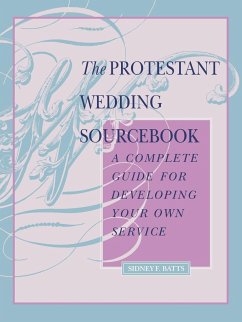The Last Wedding explores whether the institution of marriage is still important or not. The author, who performs weddings (when he has to), lays out the case for the real reason behind marriage. Frankly, it's probably not what you think. For many today, marriage is merely a contractual agreement. It's a convenience. It avoids the anachronistic taboo of living together for anyone who even cares about that old stigma anymore. Marriage has become "what one does" or should do (maybe). For some it's merely a big hassle to be avoided all together. Many marriages today are about the ceremony. How big of a splash can we make? Can we find the best venue? Should we do it up big or invite a more intimate crowd? Who should be included? Who should be left off the list? Should my Dad give me away (again)? Should we write our own vows? How much should I spend on my gown? Should we do it indoors or out? Aren't we supposed to do this in a church? Church indeed... What does the church even have to do with this institution these days? Marriage is a civil thing. The state issues the license, and even preachers have to sign and send it back to the courthouse. Is there even a connection anymore? The author of the The Last Wedding is a preacher and has performed weddings for thirty-five years. He can't remember the last time he officiated a wedding ceremony in his own church building? In fact, it's been a long time since he oversaw one inside any building at all. Does that matter to him? Does it matter to anyone? Does it matter to God? The Last Wedding is a gleeful attempt to define what real marriage is all about. It's a slightly humorous and sometimes-irreverent foray into what God intends marriage to be. Few actually think about that before they dive into their own marriages. The author gives us some meat to chew on before taking the plunge. But it's never too late. Those having already gotten wet with the dew of matrimonial bliss will benefit from this The Last Wedding explores whether the institution of marriage is still important or not. The author, who performs weddings (when he has to), lays out the case for the real reason behind marriage. Frankly, it's probably not what you think. For many today, marriage is merely a contractual agreement. It's a convenience. It avoids the anachronistic taboo of living together for anyone who even cares about that old stigma anymore. Marriage has become "what one does" or should do (maybe). For some it's merely a big hassle to be avoided all together. Many marriages today are about the ceremony. How big of a splash can we make? Can we find the best venue? Should we do it up big or invite a more intimate crowd? Who should be included? Who should be left off the list? Should my Dad give me away (again)? Should we write our own vows? How much should I spend on my gown? Should we do it indoors or out? Aren't we supposed to do this in a church? Church indeed... What does the church even have to do with this institution these days? Marriage is a civil thing. The state issues the license, and even preachers have to sign and send it back to the courthouse. Is there even a connection anymore? The author of the The Last Wedding is a preacher and has performed weddings for thirty-five years. He can't remember the last time he officiated a wedding ceremony in his own church building? In fact, it's been a long time since he oversaw one inside any building at all. Does that matter to him? Does it matter to anyone? Does it matter to God? The Last Wedding is a gleeful attempt to define what real marriage is all about. It's a slightly humorous and sometimes-irreverent foray into what God intends marriage to be. Few actually think about that before they dive into their own marriages. The author gives us some meat to chew on before taking the plunge. But it's never too late. Those having already gotten wet with the dew of matrimonial bliss will benefit from this entertaining read as well.
Hinweis: Dieser Artikel kann nur an eine deutsche Lieferadresse ausgeliefert werden.
Hinweis: Dieser Artikel kann nur an eine deutsche Lieferadresse ausgeliefert werden.








